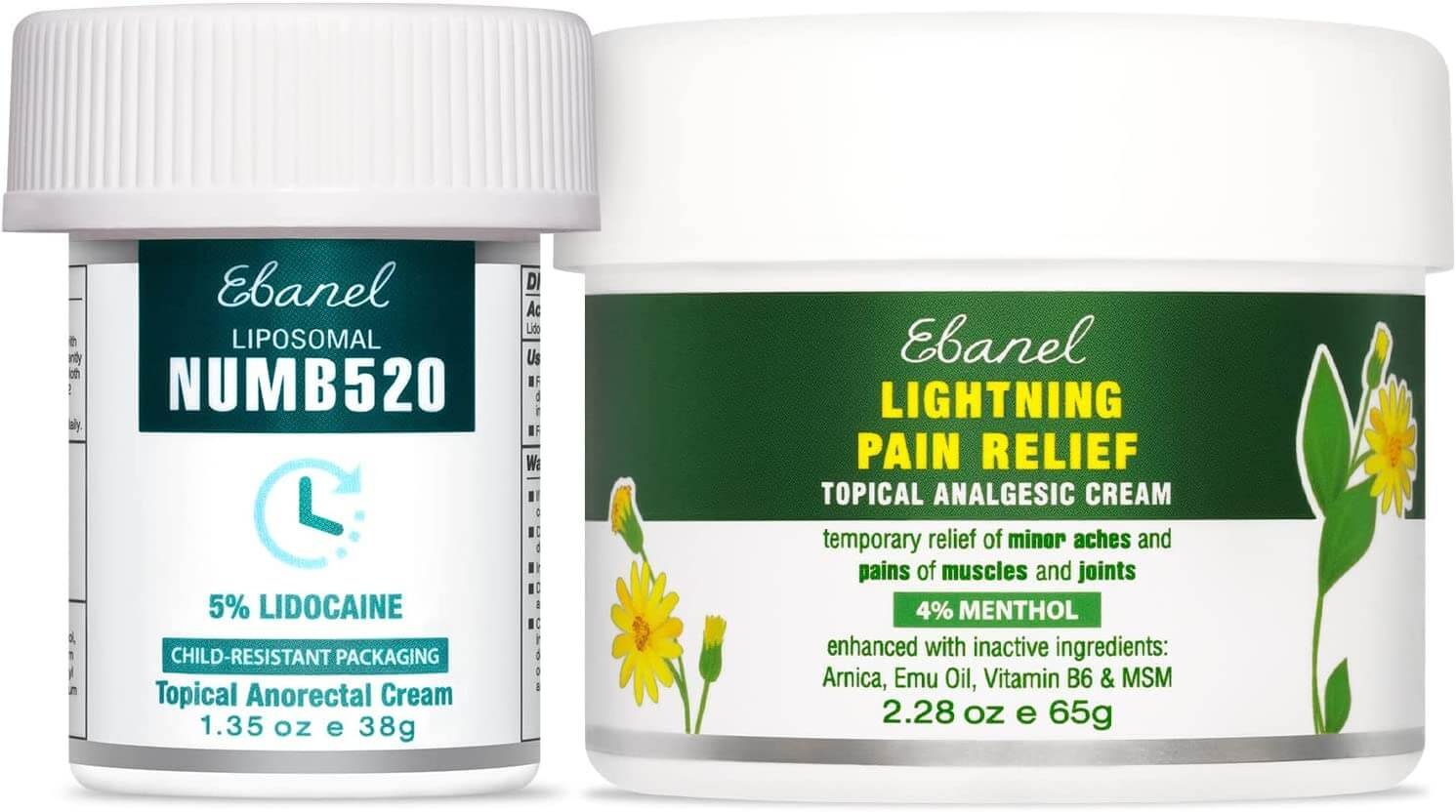Nummular eczema, also known as discoid eczema, is a chronic skin condition characterized by coin-shaped lesions that can itch, burn, and seep. While the exact cause is unknown, it often flares up when the skin is dry and exposed to irritants.
Treatment focuses on reducing inflammation and flare-ups and preventing skin infections. If you have been diagnosed with nummular eczema, it’s important to understand your treatment options and work with your dermatologist to develop an effective regimen.
Topical Corticosteroids
Topical corticosteroid creams and ointments are usually the first line of defense against nummular eczema flares.
Corticosteroids work by reducing inflammation and suppressing the immune system reactions that cause itchy, swollen skin lesions.
They come in different potencies, from low-strength over-the-counter hydrocortisone creams to high-potency prescription formulations.
Pros of Topical Corticosteroids
- Highly effective at quickly reducing inflammation, redness, swelling, oozing, crusting, and itch
- Offer short-term relief during flares
- Many potency options depending on severity
- Low-risk treatment overall
Cons of Topical Corticosteroids
- Do not address underlying cause
- Long-term use can thin skin and cause other side effects
- High-potency versions increase risk of side effects
- Can cause skin irritation or allergic reaction
- Frequent use can lead to addiction syndrome
When using topical corticosteroids, it’s best to stick to low- or mid-potency versions on small areas of affected skin for short periods of time to avoid complications. Make sure to follow dosage guidelines and wean off usage slowly.
Topical Calcineurin Inhibitors
Topical calcineurin inhibitors like Elidel or Protopic work by blocking the immune responses that trigger eczema flares. They can be used as maintenance therapy between flares or on sensitive skin areas like the face or folds where steroids may be risky.
Pros of Calcineurin Inhibitors
- Prevent future flares by interrupting the immune response cycle
- Can use safely on sensitive skin like eyelids, face, neck, groin
- Don’t thin the skin or cause other steroid-related side effects
- Available over-the-counter or prescription strength
Cons of Calcineurin Inhibitors
- May burn or sting when applied
- Don’t act as quickly as topical steroids
- Expensive compared to some steroid options
- Rarely, can increase skin cancer risk
Calcineurin inhibitors are best for sensitive skin areas and prevention between flares when used as directed. They can be combined with steroid creams in a treatment regimen.
Wet Wrap Therapy
Wet wrap therapy involves first applying prescription creams, then wrapping affected areas in wet bandages covered by a dry outer layer.
This occlusion traps moisture and helps the medication penetrate. Wet wraps are used for short bursts of several hours to quickly control severe flares.
Pros of Wet Wrap Therapy
- Rapidly reduces severe itching and inflammation
- Allows topical steroids to work better
- Provides a physical moisture barrier
- Can use for hard-to-treat areas like hands and feet
Cons of Wet Wrap Therapy
- Time consuming application process
- Wet wraps can be uncomfortable
- Risks skin infection if not done properly
- Requires supervision by a medical professional
- Often needed frequently to maintain results
Wet wrap therapy offers quick relief but requires diligent care and medical guidance. It is not suitable for moderate cases or as a standalone long-term strategy.
Phototherapy Treatments
Phototherapy uses controlled doses of natural or artificial UV light to reduce inflammation and eczema symptoms. Common options are narrow band UVB and UVA with psoralen pills. Phototherapy works by altering immune system activity in skin cells.
Pros of Phototherapy
- Effective for moderate to severe nummular eczema
- Helps interrupt the itch-scratch cycle
- Allows skin to heal between treatments
- UVA/psoralen has longer remission than UVB therapy
Cons of Phototherapy
- Requires 2-3 weekly office visits for several months
- Increases lifetime skin cancer risk
- Can cause burns, itching, and redness
- Easy to overdo causing other skin damage
- Results may not be long-lasting
Phototherapy requires commitment but can effectively treat recalcitrant eczema for patients not responding to other options. Close medical supervision is vital to ensure proper light dosing and prevent short or long-term complications.
Systemic Immunosuppressant Medications
For severe, widespread nummular eczema cases, oral immunosuppressants like methotrexate, cyclosporine, azathioprine, or mycophenolate mofetil may be prescribed.
These work by broadly suppressing the immune system reactions causing inflammation. They are used short-term when other options fail.
Pros of Systemic Immunosuppressants
- Provide relief when eczema is widespread or unresponsive
- Allow skin to heal more completely
- Cyclosporine works relatively quickly
Cons of Systemic Immunosuppressants
- Do not address underlying pathology
- Require close monitoring for serious side effects
- Can increase risks of infection or cancer
- May take weeks or months to work
- Symptoms recur when stopped
Due to their serious side effect potential, systemic immunosuppressants are reserved for severe cases only, using the lowest doses and shortest duration possible. Close medical supervision is mandatory.
Antihistamines
For nummular eczema accompanied by hives or severe itching, antihistamines like diphenhydramine or hydroxyzine may provide relief by blocking histamine receptors. They can be used to supplement other treatments.
Pros of Antihistamines
- Reduce itching in eczema flares
- Help break the itch-scratch cycle
- Allow sleep by Sedating antihistamines calm itching and allow sleep
- Available over-the-counter or by prescription
Cons of Antihistamines
- Do not treat underlying inflammation or causes
- May cause drowsiness or other side effects
- Not effective alone for eczema treatment
- Some may exacerbate dry skin
Antihistamines serve a supporting role in soothing eczema itch and scratching episodes. They should be combined with moisturizing and anti-inflammatory treatments.
Key Steps for Developing Your Nummular Eczema Treatment Regimen
With your dermatologist, develop a comprehensive nummular eczema treatment plan using a multi-pronged approach:
- Identify and avoid triggers – Pinpoint and minimize environmental, food, and other triggers that worsen your eczema through an elimination diet, allergy testing, lifestyle changes, etc.
- Gently cleanse – Use a fragrance-free, pH balanced cleanser and lukewarm water to protect your skin barrier. Avoid harsh scrubbing.
- Moisturize diligently – Apply fragrance-free creams with ceramides, hyaluronic acid, colloidal oatmeal generously over affected areas 1-2 times per day.
- Treat flares – Use topical steroids, calcineurin inhibitors, or wet wraps to quickly reduce flare symptoms as needed under guidance of your dermatologist.
- Consider phototherapy – If flares are frequent or severe, explore NB UVB or PUVA phototherapy for longer term relief.
- Address severe cases – For widespread or refractory eczema, short courses of systemic immunosuppressants may be warranted with close monitoring.
- Support with antihistamines – Add antihistamines as needed to control itching and disruption of sleep.
- Protect skin – Avoid irritants like harsh soaps, wool, temperature extremes. Treat skin gently. Keep nails trimmed to prevent infection.
The right nummular eczema treatment regimen requires diligence and consistency over time. Work closely with an experienced dermatologist to tailor a plan using proven medical therapies and lifestyle adjustments to manage your eczema successfully.











